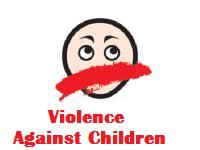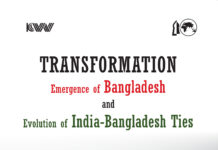What is the definition of an average good country? It’s all very well to take high interest loans from wealthy countries and financial institutions to deck the city with fairy lights, fill the roads with flashy cars, build high rise buildings and implement useful and useless projects, but that does not constitute a good country.
Then again, what is the definition of a bad country, the symptoms of a degenerate society? Forget about anything else, but a country can be considered a bad one if its women and girls, particularly girl children, live in insecurity. If its weak and innocent people are deprived of justice. If its influential people get away scot-free despite committing barbaric crimes. Even if a country goes ahead with supersonic speed, it makes no difference to the common man. There is nothing to be proud of if a girl child and a woman is subject to sexual abuse every few hours.
According to media reports, in the nine months covering January to September this year, 325 children were raped in Bangladesh. Some were even murdered after being gang-raped. Some succumbed to their injuries and died, some committed suicide in shame. Of the 325 victims, 31 were disabled physically or mentally. Five of them were raped at their workplaces, either in factories or in a house. Then again, 54 were attacked, but managed to escape before being actually raped. And then yet again, so many such incidents which take place in remote areas of the country, remain unreported.
Such a horrific picture in just nine months! Over the last few years, abuse of women and girl children has taken on epidemic proportions. In 2015 alone, 521 children were raped in Bangladesh, of whom 99 were gang raped. Last year 30 children were murdered after being raped. Four committed suicide in shame after being raped. In 2014, a total of 23 committed suicide committed suicide, shamed by being raped.
More than in any time before, the hospitals are filled with victims of sexual abuse. In most cases, girls of the deprived social strata are the victims and so cannot turn to the law. Even if they do, somehow the cases are never settled. The predators are hardly ever punished. On the contrary, the victims and their families are subject to threats and harassment.
Human beings are prone to crime. Sexual crimes have taken place from the beginning of time. As civilisation grew more and more civilised, sexual crimes were counted as most despicable crimes. These call for highest degree of punishment. And sexually abusing a child is an unpardonable crime.
When some incidents of child abuse are exposed on TV, the law enforcement agencies are obliged to take action. But in most cases, the perpetrators get away unpunished. This simply steps up the brutality. In some instances the local elders deals with rape as if it was on par with petty theft. Some rapists get away with just a 10 thousand or 20 thousand taka fine. Or the elders just hit them with their shoes a few times as punishment. They do not feel the need for legal measures.
Religious terrorism in the name of Islam is a global danger. Some countries are awash with the blood of such terrorism. Bangladesh is much more peaceful than many other countries in the world, even after the killings by extremists. Prime minister Sheikh Hasina’s government has been praised for keeping religious extremists under pressure. But no matter what lies behind bloodshed and barbaric crimes, no matter who is responsible, it is despicable and condemnable.
It is no less horrific than any militancy, when in a matter of 21 months, 846 children are raped and gang raped, about 50 children are killed after rape and about 20 commit suicide in shame of being raped. The government that is praised for steps against militancy is totally indifferent to the rape and killing of the girl child. The world will condemn this.
It needs serious study to determine the reason for this increase in sexual abuse of children. That is the task of academics and professional experts. It is one thing to take action against the criminals after the crime is committed, and another to keep the society safe and free of crime.
Society cannot simply lay the blame on the law enforcers and themselves remain silent spectators. Like other countries, we have something known as ‘local government’. There is no end to meetings, roundtable and discussions on how to increase the facilities and status of the local government officials. They get bigger and better allocations of money and wheat to make roads and culverts. That is fine. But have they any idea of their constitutional and ethical compulsions?
I often recall an incident in the sixties when I heard of some hooligans harassing a girl. Very few village girls would go to school then and there were hardly any schools for girls. Girls would have to study alongside boys. I was walking along in a village with politician and a freedom fighter commander Captain (retd) Abdul Halim Chowdhury when we came across a gathering in front of a school. The local chairman had taken a whip from a horse rider who had been passing by. He whipped a boy who had been harassing some girls on the way to school. Such immediate punishment prevented such crimes from being repeated. Nowadays mobile courts sometimes fine or sentence such hooligans prison, but the situation does not improve.
Among many types of oppression, girls in Bangladesh are subject to two particular forms of abuse. Girl children of the poor labour class are subject to rape, gang rape and murder. Girl students of the middle class are harassed by hooligans in the streets. The leaders of our society fail to comprehend the seriousness of the issue. The mobile phone is being used as a dangerous tool against girls.
There exists strong laws against oppression of women and children in the country, but the criminals are hardly subject to these laws. There is hardly any use in holding human chain programmes instead of punishing the perpetrators of rape, gang rape and murder. It is imperative to take measures so women and children are not raped and killed.
The commitment of 1971 was for a safe and secure state for everyone, regardless of gender, class or creed. When a girl child lies stained in blood, the entire nation is tainted with blood. When a girl child victim bleeds, the hearts of the country’s 160 million people bleed. If the barbarity of the Pakistan armed forces is repeated even now, then how far have we come? A society where the girl child is not safe from the claws of these beasts, is a damaged society indeed. We are committed to establishing a safe and secure state, not a damaged one.
Source: Prothom Alo










